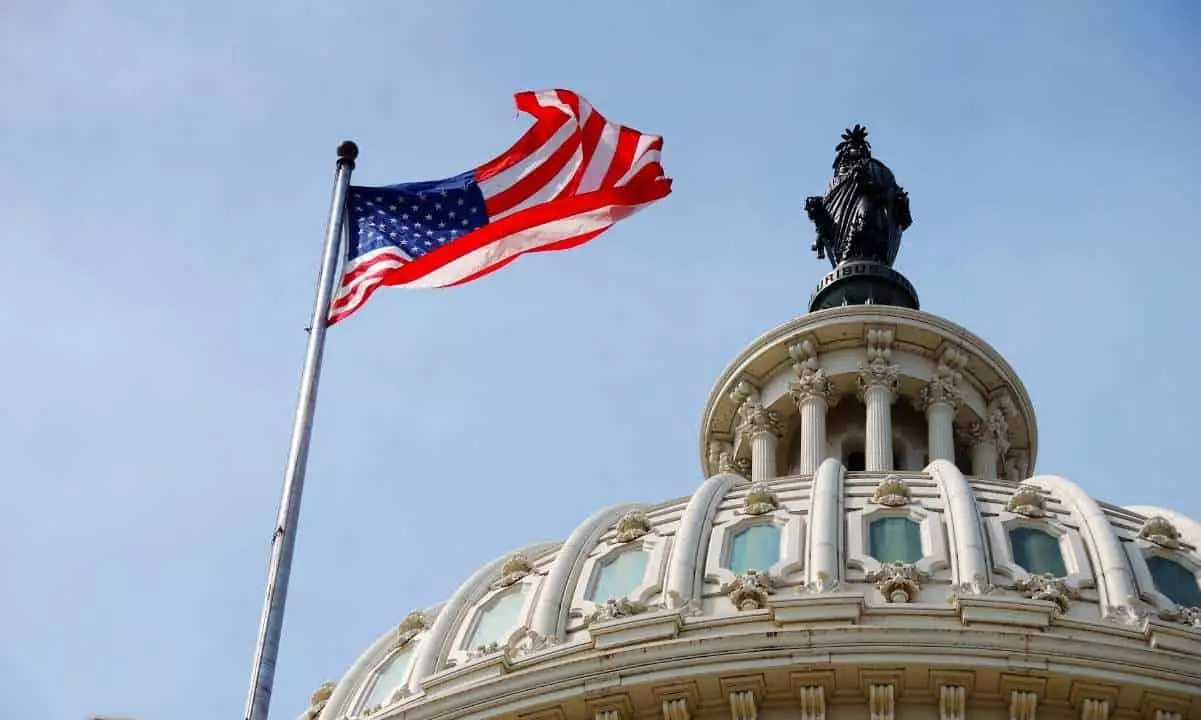In a notable development for the burgeoning world of cryptocurrency, the U.S. Senate Banking Committee, under the leadership of Chairman Tim Scott, is gearing up to create its inaugural subcommittee specifically focused on digital assets. This initiative is emblematic of a growing recognition within legislative circles that cryptocurrency represents not just a financial innovation but also a complex regulatory challenge that demands dedicated oversight. As a sign of this commitment, Senator Cynthia Lummis, who has been appointed to lead the subcommittee, is awaiting a forthcoming vote to cement her role.
This movement to form a cryptocurrency-focused subcommittee reflects broader political dynamics, particularly with the Republican Party newly in control of the Senate. With the anticipated presidential inauguration of Donald Trump occurring shortly, the GOP is looking to establish a cohesive strategy, particularly around technology and digital finance—a sector that many believe will be pivotal for economic growth in the 21st century. The regulatory framework for digital assets is still nascent, highlighting the urgency for a dedicated body that can delineate responsibilities among existing financial regulators such as the Securities and Exchange Commission (SEC) and the Federal Deposit Insurance Corporation (FDIC).
Lummis’s leadership is promising; she has long been an advocate for cryptocurrency, known for her commitment to fostering a regulatory atmosphere that encourages innovation while safeguarding consumers. The subcommittee’s creation aligns with the shift toward recognizing the potential of digital currencies, aiming to develop comprehensive and coherent regulatory standards which, until now, have been fragmented and inconsistent.
The approach being taken by the Senate Banking Committee resembles prior initiatives from the House, particularly the subcommittee established by Patrick McHenry in 2023, which was designed specifically to address similar issues. The House Financial Services Committee’s recent passage of the Financial Innovation and Technology for the 21st Century Act (FIT21) underscores a legislative trend emphasizing responsible crypto regulation. This bill clarifies the duties of various agencies in overseeing the cryptocurrency landscape and introduces critical consumer protections, such as the assurance that customer funds will not be co-mingled, a vital measure that aims to avert catastrophic failures akin to the FTX collapse.
The collaborative framework between the two chambers of Congress will play an essential role in shaping the future of cryptocurrency regulation in the United States. The Senate’s establishment of this subcommittee can be interpreted as a strategic response to the need for clarity in a rapidly evolving market, where outdated regulations may hinder innovation.
With the new subcommittee comes an array of Republican senators known for their support of cryptocurrency. Senators like Bernie Moreno, Dave McCormick, Thom Tillis, and Bill Hagerty are expected to contribute diverse perspectives on how best to approach the regulation of the digital assets industry. Their strong advocacy positions them as influencers in the developing regulatory landscape, one that must carefully navigate technological innovation alongside necessary consumer protections.
Conversely, the Senate subcommittee may face challenges, particularly from prominent figures like Elizabeth Warren, who has openly criticized cryptocurrency’s potential dangers. Balancing the voices of proponents and opponents will be critical for the subcommittee’s credibility and effectiveness.
The establishment of a dedicated cryptocurrency subcommittee in the U.S. Senate is undeniably a watershed moment for cryptocurrency governance in America. This development not only symbolizes a more organized approach by lawmakers to address the complexities surrounding digital assets but also reflects a broader acknowledgment of the transformative potential cryptocurrencies hold for the economy. With the collaboration between the new Senate body and the existing frameworks in the House, there is a real opportunity for the U.S. to position itself as a leader in the global digital finance arena. However, the journey ahead will require careful consideration and concerted efforts to ensure that regulation fosters innovation while adequately protecting consumers.

